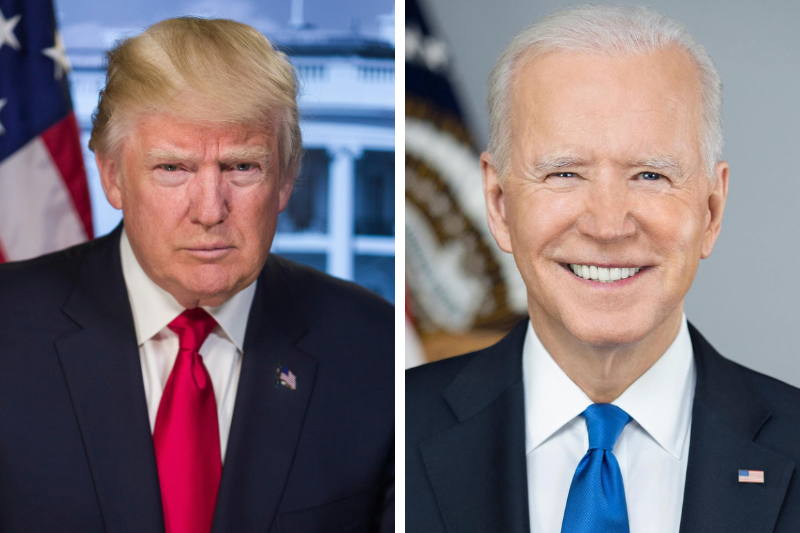By Brandon Cline, Mississippi State University
Former President Donald Trump, the Republican Party’s nominee, is 78. No one older has ever run for U.S. president as their party’s official nominee. That was also true in 2020, when Trump lost to President Joe Biden.
Biden was 81 when he dropped his reelection bid on July 21, 2024. His age, coupled with apparent signs of cognitive and physical decline, played a major role in efforts to persuade him to step aside. Many politicians, journalists and other Americans are also asking questions and expressing doubts about Trump’s stamina and his ability to lead the nation.
These concerns are justified by research I and a fellow finance professor, Adam Yore, conducted about older CEOs.
One of our observations was that approximately half of the 1,500 largest public companies in the U.S. make their CEOs step down when they turn 65 or so.
Making retirement mandatory
Two high-profile examples are General Electric’s storied CEO Jack Welch, who was forced out at age 65, and former vice president Al Gore, who stepped down from Apple’s board of directors in January 2024 after serving on it for two decades. Gore, along with a fellow board member, had turned 75, and that made them ineligible for a new term.
This corporate practice leads to a logical question: If Gore is deemed too old to serve on Apple’s board of directors, does that make politicians his age too old to run one of the most powerful countries in the world?
For companies included in the S&P 500 index, which is widely regarded as the best measure of U.S. stock market’s performance, mandatory retirement policies are even more common. Nearly 70% of those 500 companies make their board members retire at a particular age.
We found that the typical retirement age for a CEO is 65 and that members of corporate boards of directors in companies with mandatory retirement ages usually have to step aside in their mid-70s.
If that standard were applied to U.S. politics, neither Trump nor Biden would have been able to run for president in 2020, let alone 2024.
Yore and I, in a study we published in 2016 in the Journal of Empirical Finance, found compelling evidence supporting the use of mandatory retirement policies for top executives.
After controlling for how long the CEOs had served, the data revealed that each year a CEO ages, a company loses 0.34% of its value. We also determined that this effect is driven primarily by CEOs over the age of 68.
Splitting the sample into CEOs under 42 and CEOs over 68, essentially the youngest and the oldest of these corporate leaders, revealed that shares in companies with the younger CEOs outperformed shares in companies led by the older CEOs by 1.55% per year.
The data we reviewed also indicated that this negative association between a CEO’s age and the performance of shares in their companies disappears for companies with mandatory retirement policies. We therefore concluded that mandatory retirement policies are effective in limiting the negative effects on performance associated with older CEOs.
Anticipating negative consequences
To be clear, we didn’t set out to prove that this was true.
Our hunch was that mandatory age limits were primarily used as a tool to force out entrenched executives who had amassed too much power for the good of their shareholders. But after combing through about 12,600 data points we found no evidence for our original hypothesis.
In other words, our findings contradicted what we expected to see. Instead, we learned that companies led by older CEOs are far less active in deal-making.
That is, they are less likely to engage in mergers and acquisitions, new partnerships, and joint ventures than CEOs who are younger. They’re also less likely to hire or fire employees. This holds true regardless of how long the CEO over 65 has held their job.
Documenting cognitive changes
Our findings were consistent with scientific evidence about aging.
Declines in cognitive ability are very common as people age, many researchers have found. Age-related physiological changes appear to affect decision-making and impair judgment-related performance as well. Researchers have long found that inductive reasoning, perceptual speed, numerical ability, and verbal memory all show long-run declines with age, although some of those issues can be reversed. And these traits are necessary for the leadership of corporations and governments alike.
To be sure, there are clear differences between leading a country and leading a company. And there are obviously benefits from experience that come with age. However, many of the skills and characteristics needed to get either job done right are similar.
Many of the nation’s most successful companies prefer executives who are under 65 because younger leaders tend to perform better than their older counterparts. A decade after conducting this research, I’m wondering whether that preference should also apply when Americans choose the person who will lead the United States.
This is an updated version of an article that originally ran on July 19, 2024.
Brandon Cline, Professor of Finance, Mississippi State University
This article is republished from The Conversation under a Creative Commons license. Read the original article.






